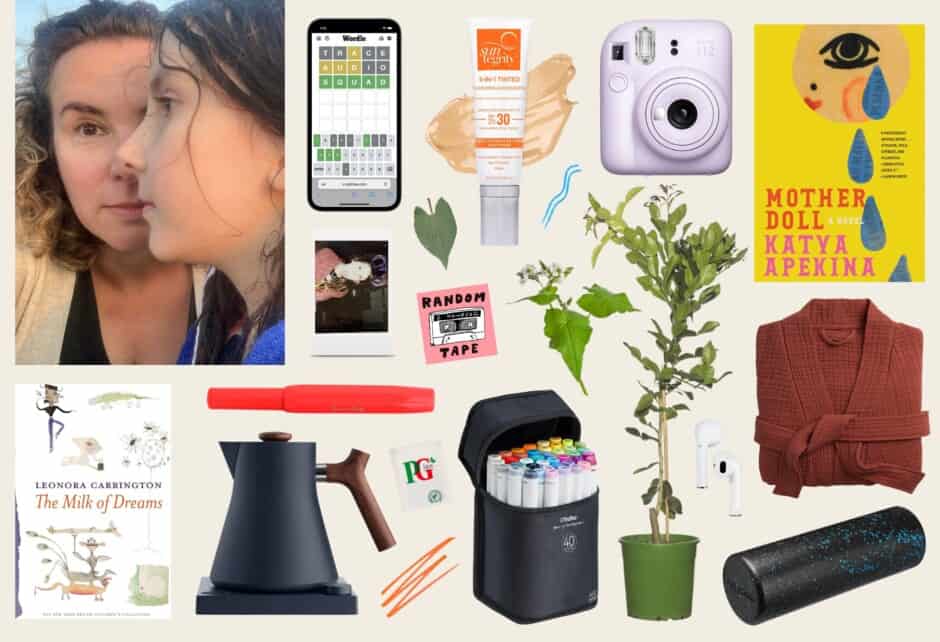
How To Talk To Your Daughters (And Sons!) About Periods
Written by Katie Hintz-Zambrano
Photography by Photographed by Maria Del Rio
Every woman has an awkward story about her period. And some of that awkwardness might be due to the fact that periods, although a completely natural and vital part of humanity, are shrouded in taboo (in fact, the word taboo, from the Polynesian word tapua, means “menstrual flow”)! Of course, as parents, we have a unique position to help normalize periods and alleviate the shame in girls and confusion in boys.
One person particularly invested in this cause is THINX founder Miki Agrawal, who is spreading period-positivity through her activism and innovative blood-absorbing undies line (for every pair you buy, much-needed pads get sent to girls in Africa). So, who better to help us develop this simple guide to talking about periods with your kids.
Start early: Don’t count on the sex-ed program at your school to do the talking for you. When you feel that your child is old enough to start learning more about boy and girl body parts (typically around 8-10 years old, keeping in mind that most girls get their period between 11-14 years old), grab the female anatomy books or use a video like this and explain what happens to a woman during her period and why. Like any effective sex-ed, using proper words (vagina, penis, uterus, etc.) is key in helping kids feel comfortable with and talking openly about their bodies. No question should be out-of-bounds.
Male participation is key: If there are boys in your family (dad included), get them involved in the lesson and conversation. Educating boys and men on what a period is will help them be sympathetic instead of avoidant, awkward, or even mean when mom or sister has her flow. If your daughter needs her father to buy her tampons or pads, it’s better for it not to be a weird thing. Also, if you don’t even have a daughter, it’s still important to explain to your son what a period is.
Try peer-to-peer communication: If you know a girl that’s a bit older than your children and has had her period, ask her to talk to your kids about the topic. Chances are your kids have lots of questions, and sometimes it’s easier to hear the answers coming from someone a little closer to their age. This should be supplemental, however. Make sure you’ve discussed periods with them directly, too, so that you know the information they’re getting.
Celebrate her period: Think about having a ritual to celebrate your daughter when she first gets her period, instead of making it a negative, dread-filled event that needs to be spoken about in hushed tones. She’s entering womanhood and a new level of maturing, which is worth celebrating. Give her a card telling her what a wonderful young woman she’s turning into, have a special family dinner, do whatever feels right for your family. Make sure dad celebrates her, too.
Find out how periods are handled in school: Ask your kids how period talk is usually handled at their school. Figure out what’s being taught in sex-ed (or if there’s a sex-ed class at all). If your daughter doesn’t have a tampon or pad on hand or feels ill during school, find out what her resources are. If you sense that there’s a reinforcement of period taboo, voice your concerns when appropriate and discuss with fellow parents how they’re talking about periods at home.
Discuss your own period: Are you still asking a stranger for a tampon by whispering in an empty bathroom stall? Cut it out! Not only does tiptoeing around periods send the message to your kids that menstruation can’t be discussed, it also reinforces current stereotypes amongst men and women that there’s something wrong with having a period. To start breaking the cycle yourself, swap period stories with your friends. Don’t hide your tampon box when you’re in the check-out line. If you’re having your period and feeling discomfort, share that information with your kids.
Periods in the third world: Although periods in the U.S. might be awkward, many women in third-world countries have it much worse. Thanks to religious teachings, age-old cultural norms, and lack of education on the topic, a staggering number of girls miss large chunks of school during their periods (resulting in higher drop-out rates) and face varied forms of ridicule. We suggest you find out more in the video below and share it with your tweens and teens.
Share this story



